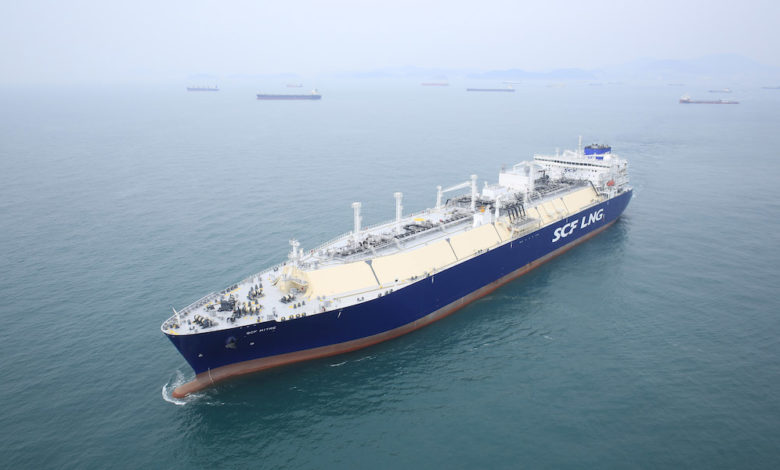Sovcomflot finds class and insurance solutions to keep trading internationally

Russian shipping has come up with both domestic and Asian solutions to keep its fleets operating during the ongoing war with Ukraine.
Faced with an ever growing range of sanctions in the near four months since war began Moscow has had to get creative to ensure its ships are able to trade internationally.
State-run Sovcomflot revealed on Friday that it has got all of its ships now covered via Russian insurers after western P&I clubs dropped the company in the face of sanctions. In terms of reinsurance, Sovocomflot is now covered by state-run Russian National Reinsurance Company.
“Technically, we meet all international trade requirements,” Sovcomflot CEO Igor Tonkovidov told reporters last Friday.
Likewise, many Russian ships have switched classification societies in recent months. Data from the website of the International Association of Classification Societies (IACS) shows more than 50 Russian ships, including many from Sovcomflot, have moved to be classed by the Mumbai-headquartered Indian Register of Shipping (IRClass). Indeed, for Q2 this year, IRClass, which is an IACS member, can claim to be the fastest growing classification society in the world.
India has upped its buying of Russian crude a great deal in the opening months of the invasion of Ukraine, helping offset the losses to Moscow’s coffers from the drop in European custom.
Tanker broker Poten & Partners suggested in its most recent weekly report that if Russia can solve its ship insurance issues, crude trade with Asian buyers will likely continue to grow, something it viewed as positive for suezmax tankers for Black Sea exports and for aframaxes for reverse lightering and VLCCs for Baltic Sea exports.
“If Russia manages to divert its export volumes to Asia, the changes should be a net positive for tankers. However, if insurance bans limit Russian exports and production falls significantly, the crude tanker market could be in trouble with much higher bunker prices and lower trade volumes,” Poten suggested.
Using marine insurance as a sanctions weapon is not new. In 2012, a European Union oil embargo on Iran prohibited EU insurers from covering Iranian oil exports anywhere in the world. This proved to be a very powerful tool with Poten noting in an earlier report how Iranian exports dropped 25% to 30%. The difference with Russia in 2022, however, is that countries such as China and India are not onboard with current sanctions.
